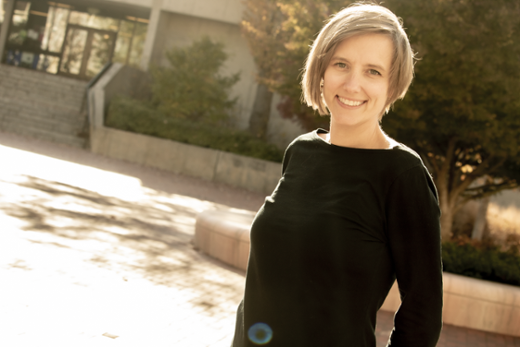Laney Graduate School Sociology doctoral student Emily Pingel admitted that as an undergraduate studying anthropology, she was often intimidated by the thought of participating in the overseas ethnographic work of her professors. As a graduate student, however, doing fieldwork abroad became pivotal to her research.
Pingel was always enamored with conducting in-depth interviews for her research projects. She primarily focused on medical anthropology and her desire to understand how medicine and public health operate as institutions led her to attain her Master of Public Health at the University of Michigan.
While at Michigan, Pingel and Dr. José Bauermeister, who currently works at the University of Pennsylvania's School of Nursing, conducted research with LGBTQ+ communities in Flint and Detroit. The research focused on HIV prevention and allowed Pingel to enhance her more qualitative skills with a quantitative approach. After completing her degree, she became the managing director of the University of Michigan's Center for Sexuality and Health Disparities.
The work at Michigan motivated Pingel to come to Emory University to pursue a PhD in Sociology in the Laney Graduate School. At Emory, Pingel discovered a new approach to her research interests.
"When I got to Emory, there was a strong contingent of folks across departments who were working in Brazil; and one of the things that interested me was pivoting my research, in addition to being domestic, to also doing international research in Brazil," she said.
Pingel got her chance to make that pivot with Dr. Jeffrey Lesser, Samuel Candler Dobbs Professor of History and Director of the Halle Institute for Global Research. Lesser became a close collaborator and mentor.
"Emily and I have moved from a student-professor relationship to more of a research partner relationship over the years," said Lesser.
As a joint effort, the research partners worked together in a neighborhood within São Paulo, Brazil, called Bom Retiro (or good retreat), which is a hub for South and international immigrants (primarily people from Korea, Peru, Paraguay, and Bolivia).
Pingel conducted her ethnography on the operations of a health post called the Unidade Básica de Saúde ("Primary Health Unit") of Bom Retiro to understand how Brazilian community health workers interact with the immigrant residents of the neighborhood. Whereas Pingel looked at the entire area, Lesser's end of the project studied 150 years of history within one block of the community.
"What we want to show is that the present situation in Bom Retiro may be a continuity over a long period of time," explained Lesser. "Because, if the issue is that people arrived from Bolivia yesterday, it's different than saying there's always some version of the people who arrived. Why do things stay the same?"
The joint research between Lesser and Pingel demonstrates the necessity of adding historical context to sociological work. Both researchers believe the interchange of ideas throughout their stay in São Paulo played a crucial role in the rigor of their individual projects.
In 2019, Pingle returned from her 15-month ethnographic research project in São Paulo with a more comprehensive understanding of how racism, poverty, and immigration impact caregiving within the city's health institutions.
Pingel's research also left an impression on her co-advisor and Samuel Candler Dobbs Professor of Sociology, Dr. Ellen Idler. Both Pingel and Idler share a common interest in community-based methods of research.
"I am primarily a quantitative researcher with older U.S. populations," explained Idler. "Emily's qualitative, ethnographic approach, and focus on adolescents and adults of all ages, in Brazil, has been horizon-broadening for me."
Pingel's mentorship by both Lesser and Idler exemplifies the Laney Graduate School's dedication to promoting interdisciplinary studies. Now that Pingel has returned to the U.S., she will continue to work on her dissertation, including three articles that are influenced by her interdisciplinary experience and international research.
The first article focuses on how health workers in Bom Retiro navigate their relationships with immigrant patients. The second article discusses social support and gender roles among a group of middle-aged and older adult women in Bom Retiro, and in her third piece, Pingel plans to examine the connection between housing and health in Bom Retiro.
Now, as Pingel considers her future career options, she is open to all possibilities. She is exploring the opportunity to work for a federal agency such as the Centers for Disease Control and Prevention (CDC) or continuing on the path of academia.
"I don't like to close any doors in advance," Pingel said. "I enjoy the academic freedom that being a graduate student has given me. I have had the opportunity to explore new ideas. I could never have imagined that I would have these kinds of experiences, and I think that's an incredibly special gift."

